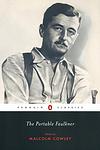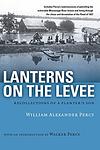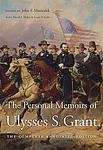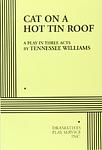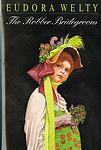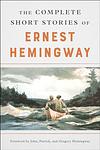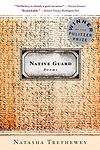The Greatest "Mississippi" Books of All Time
Click to learn how this list is calculated.
This list represents a comprehensive and trusted collection of the greatest books. Developed through a specialized algorithm, it brings together 300 'best of' book lists to form a definitive guide to the world's most acclaimed books. For those interested in how these books are chosen, additional details can be found on the rankings page.
Genres
The category of "Mississippi" books encompasses literature that is set in or inspired by the state of Mississippi. These books may explore the unique culture, history, and landscape of the region, as well as the social and political issues that have shaped its identity. From classic works by William Faulkner and Eudora Welty to contemporary novels by Jesmyn Ward and Michael Farris Smith, Mississippi literature offers a rich and diverse perspective on the American South.
Countries
Date Range
Reading Statistics
Click the button below to see how many of these books you've read!
Download
If you're interested in downloading this list as a CSV file for use in a spreadsheet application, you can easily do so by clicking the button below. Please note that to ensure a manageable file size and faster download, the CSV will include details for only the first 500 books.
Download-
26. A Rose for Emily by William Faulkner
"A Rose for Emily" is a Southern Gothic short story about the life of Emily Grierson, a woman from a once prestigious family who lives in isolation in her decaying mansion in a small Southern town. Emily's life is narrated through the eyes of the townspeople, revealing her struggles with her father's controlling nature, her romantic relationship with a man beneath her social status, and her descent into madness. The story is renowned for its unexpected and shocking conclusion, which reveals a dark secret Emily has been hiding in her home.
-
27. The Confidence Man by Herman Melville
"The Confidence Man" by Herman Melville is a satirical novel that takes place on a Mississippi steamboat, where a mysterious man known as the Confidence Man interacts with various passengers, exploiting their weaknesses and manipulating their trust. Through a series of encounters and conversations, Melville explores themes of deception, human gullibility, and the complexities of identity, ultimately challenging the reader's perception of truth and the nature of confidence.
-
28. The Keepers of the House by Shirley Ann Grau
The novel tells the story of a wealthy, prominent Southern family, the Howlands, who have lived on the same plot of land in Alabama for over a century. The narrative is marked by the scandalous interracial relationship between the patriarch, William Howland, and his African-American housekeeper, Margaret Carmichael. Their secret relationship and the children it produces are kept hidden until William's death, when his granddaughter, Abigail, uncovers the truth, leading to a dramatic confrontation with the racially prejudiced townspeople. The book explores themes of race, family legacy, and the destructive power of bigotry.
-
29. The Reivers by William Faulkner
This novel is a humorous coming-of-age story set in the American South in the early 20th century. It follows a young boy who, along with two companions, steals his grandfather's car and embarks on an adventure to Memphis. Along the way, they encounter various characters and situations that challenge their morals and force them to grow up quickly. The journey serves as a metaphor for the loss of innocence and the harsh realities of adulthood.
-
30. Sartoris by William Faulkner
This novel delves into the complex dynamics of the Sartoris family, set in the post-Civil War South. It explores themes of honor, decay, and the struggle between the old and new South through the lens of the Sartoris family, who are emblematic of the aristocratic Southern families facing decline. The narrative weaves through the lives of its characters, revealing the impacts of war, the weight of legacy, and the challenge of adapting to a changing world. Through vivid storytelling and deep psychological insight, the novel portrays the internal and external conflicts that shape its characters, offering a poignant look at the remnants of Southern aristocracy trying to find their place in a reconstructed society.
-
31. The Portable Faulkner by William Faulkner
This collection showcases the work of a celebrated American author, featuring selections from his novels, novellas, short stories, poetry, and essays. The book provides a comprehensive overview of the author's distinctive narrative style and his exploration of complex themes such as identity, race, and the human condition, set against the backdrop of the fictional Yoknapatawpha County in the American South. It serves as an excellent introduction to the author's oeuvre, demonstrating his profound influence on 20th-century literature.
-
32. North Toward Home by Willie Morris
"North Toward Home" is a memoir that explores the author's journey from his childhood in the South during the 1940s, through his college years in Texas, and finally his time in New York City as a young writer in the 1960s. The book offers a vivid portrayal of the South's racial tensions and the author's struggles with the cultural differences in the North. The author's longing for his Southern roots while grappling with the stark realities of racism and social change forms the central theme of the book.
-
33. Lanterns on the Levee by William Alexander Percy
"Lanterns on the Levee" is a memoir that captures the author's life growing up in the Mississippi Delta during the early 20th century. It provides a vivid portrayal of the Southern aristocracy, their traditions, and their struggles with racial tensions and changing societal norms. The memoir also delves into the author's personal struggles with his identity and his search for meaning in life, offering a unique perspective on the American South during a time of significant change.
-
34. Personal Memoirs of Ulysses S. Grant by U. S. Grant
This book is a first-person account of the life and military career of a notable American Civil War general who later became the 18th President of the United States. It covers his childhood, his time at West Point, his experiences in the Mexican-American War, and his crucial role in the Civil War. The memoir also delves into his presidential years, offering a unique perspective on historical events from a key player's point of view. It is widely praised for its honesty, insight, and clear, straightforward style.
-
35. Go Down, Moses by William Faulkner
This novel is a collection of interconnected stories that explore the complex relationship between race, heritage, and land in the American South. The narrative primarily focuses on the McCaslin family, a family of white landowners, and their relationships with the African American individuals who were formerly enslaved by them. The book explores themes of racial exploitation, inheritance, and the destructive power of obsession, particularly through the character of Ike McCaslin, who renounces his inheritance due to its roots in slavery.
-
36. Tournament by Shelby Foote
"Tournament" is a Southern Gothic novel that delves into the life of a young man with a passion for writing, who is coming of age in the Mississippi Delta during the early 20th century. The story follows his experiences and relationships within a declining aristocratic family, exploring themes of ambition, love, and the struggle against societal expectations. As the protagonist navigates through various encounters and personal challenges, the novel paints a vivid picture of the Deep South's culture, its class system, and the impact of history on individual destinies.
-
37. Iola Leroy by Frances Harper
The novel follows the life of Iola Leroy, a woman of mixed race who lives initially unaware of her African American heritage due to her light skin. After her family's secret is exposed and they are sold into slavery during the American Civil War, Iola embraces her identity and becomes an advocate for African American rights. The story delves into themes of racial identity, the brutality of slavery, and the struggle for emancipation. As Iola navigates the complexities of post-war society, she dedicates herself to improving the lives of her people through education, social work, and the fight for equality, embodying the resilience and hope of a nation seeking to heal from its divided past.
-
38. Cat on a Hot Tin Roof by Tennessee Williams
This classic play explores the turbulent relationships within a wealthy Southern family. The main characters include an alcoholic ex-football player, his wife, and his domineering father, who is dying of cancer. The story revolves around the family's internal conflict, deceit, and denial as they grapple with the patriarch's impending death and the question of who will inherit the family's wealth. Themes of sexual desire, repression, greed, and death are prominent in this intense, emotional drama.
-
39. The Hate U Give by Angie Thomas
The novel follows the story of a teenage girl who witnesses the fatal shooting of her childhood best friend at the hands of a police officer. Living in a poor neighborhood but attending a predominantly white, wealthy private school, she must navigate the dichotomy of these two very different worlds while grappling with the trauma of her friend's death. As she becomes more involved in activism and advocacy, she must confront the reality of racism, police brutality, and societal injustice.
-
40. The Country Blues by Samuel B. Charters
"The Country Blues" is a seminal exploration of the origins and development of the blues genre, particularly focusing on its rural roots. The book delves into the lives and music of early blues musicians, tracing the evolution of the blues from its beginnings in the American South. Through detailed analysis and personal interviews, the narrative captures the profound emotion and cultural significance of the blues, highlighting its impact on American music history. The author's research and storytelling provide a deep appreciation of the genre's artistic depth and its role as a voice for its community.
-
41. Ray by Barry Hannah
"Ray" is a darkly comedic and deeply moving novel about a Vietnam War veteran and former pilot who is grappling with his past and his own self-destructive tendencies. The protagonist's candid, often rambling monologues reveal his struggles with alcoholism, his failed marriages, and his complicated relationships with women, as well as his reflections on life, death, and the human condition. Set in the American South, the novel is a raw and poignant exploration of a flawed man's search for meaning and redemption.
-
42. Why Did I Ever? by Mary Robison
The book is a fragmented and darkly humorous narrative that follows the life of a screenwriter in crisis, as she navigates the complexities of her professional and personal life. Through a series of short, diary-like entries, the protagonist grapples with her work on a script, her relationships with her children, and her own mental health. The novel's disjointed structure mirrors the chaos of her thoughts, painting a portrait of a woman trying to piece together her fragmented existence amidst the absurdities and tragedies of everyday life.
-
43. The Robber Bridegroom by Eudora Welty
Set in the American South, the novel is a dark fairytale that revolves around the story of a charming and mysterious outlaw known as the Robber Bridegroom. He leads a double life, courting a virtuous innkeeper's daughter while leading a band of thieves in the wilderness. As the wedding day approaches, the bride-to-be begins to uncover the sinister truth about her fiancé's nefarious activities. Blending Southern folklore with the Brothers Grimm, the narrative unfolds with a mix of humor, romance, and macabre twists, ultimately exploring themes of identity, deception, and the nature of storytelling itself.
-
44. Summer And Smoke by Tennessee Williams
The play centers around the complex emotional interplay between two central characters: a high-strung, unmarried minister's daughter and a charming, unsentimental doctor's son. Set in a small town in Mississippi at the turn of the 20th century, the narrative explores themes of romantic longing, societal expectations, and the conflict between the spiritual and the physical. As the daughter grapples with her puritanical beliefs and her attraction to the doctor's son, their tumultuous relationship unfolds against a backdrop of Southern heat and repression, ultimately questioning whether true connection can be found in the convergence of the soul and the flesh.
-
45. Complete Short Stories by Mark Twain
This collection brings together the masterful tales of one of America's most influential writers, offering a showcase of his wide-ranging humor and keen observation of human nature. The stories traverse a variety of genres and settings, from the deep South to the Western frontier, blending satire, social commentary, and whimsy. The author's distinctive voice and unforgettable characters, including the mischievous boys of a small-town America and the cunning tricksters navigating society's foibles, reflect the complexities of the human condition with wit, irony, and insight. Through these narratives, the book captures the essence of 19th-century American life, revealing the joys, sorrows, and peculiarities of the time.
-
46. The Wild Palms by William Faulkner
The novel intertwines two distinct narratives: one follows a young couple, Harry and Charlotte, who rebel against societal norms by eloping and living a transient lifestyle fueled by passion and disregard for consequences, while the other narrative presents the story of an older man, McCord, serving time in prison for murder and reflecting on his life and the events that led to his incarceration. The two stories, set in the contrasting landscapes of the untamed wilderness and the confines of a cell, explore themes of freedom, love, and the inexorable consequences of personal choices, ultimately revealing the tragic and inextricable link between the two tales.
-
47. The Chamber by John Grisham
This legal thriller delves into the life of a young attorney who faces the daunting task of defending his grandfather, a former Ku Klux Klan member sentenced to death for a racially motivated bombing. As the lawyer digs deeper into his family's past and the case, he confronts not only the legal system's complexities but also the entrenched racial prejudices and moral dilemmas surrounding the death penalty. Set against the backdrop of the American South, the narrative explores themes of justice, redemption, and the possibility of change, challenging the protagonist and readers to reconsider their views on punishment and forgiveness.
-
48. The Runaway Jury by John Grisham
In this legal thriller, a high-stakes lawsuit against a major tobacco company becomes the battleground for an intense manipulation game. The story centers around a jury tampering scheme orchestrated by a mysterious man with a personal vendetta, aiming to influence the trial's outcome. As the case unfolds, both the defense and the plaintiffs find themselves outmaneuvered by this enigmatic figure, leading to a series of twists and turns that keep the reader guessing until the very end. The novel delves into the dark corners of the legal system, exposing the lengths to which individuals will go to secure a verdict, and raises ethical questions about justice and manipulation.
-
49. Native Guard by Natasha Trethewey
This Pulitzer Prize-winning poetry collection serves as a profound meditation on memory and the racial legacy of the American South. Through a blend of personal history and national narrative, the poems weave together the story of a mother's death, the poet's childhood in Mississippi, and the forgotten history of the Louisiana Native Guards, a black regiment assigned to guard Confederate prisoners of war. The work explores themes of loss, the intersection of personal and collective past, and the complex nature of remembrance, ultimately questioning what it means to be a native guardian to history's darker truths.
-
50. Heavy: An American Memoir by Kiese Laymon
This memoir is a profound exploration of the author's life as a Black man in America, grappling with the complex intersections of weight, identity, and societal expectations. Through a narrative that is both deeply personal and universally resonant, the author confronts the burdens of his own body, the fraught relationship with his mother, and the struggles with gambling, violence, and education. The book is a raw examination of the ways in which both personal and cultural history shape our bodies and our lives, and how the weight of carrying these stories can be both a source of immense strength and a heavy, often unbearable, load.
Reading Statistics
Click the button below to see how many of these books you've read!
Download
If you're interested in downloading this list as a CSV file for use in a spreadsheet application, you can easily do so by clicking the button below. Please note that to ensure a manageable file size and faster download, the CSV will include details for only the first 500 books.
Download




